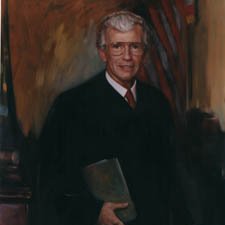And we’ll show you two ways to help. Together, we can be a voice for change and protect Michigan’s land, air, water, public health, and democracy.
This case examined whether the Department of Natural Resources had to comply with local zoning ordinances when it wished to dredge and build a boat ramp and parking facilities on Burt Lake. The majority held that the DNR must comply with local zoning regulations absent express language to the contrary in the Natural Resources and Environmental Protection Act (NREPA). While the minority opinion would have resulted in greater public access to boating on Burt Lake, the majority opinion preserved the right of townships to protect the natural resources within their borders.
Both opinions were based on the justices’ interpretations of whether or not the legislature intended for the DNR to be exempt from local zoning when building boat ramps. Shortly before this case was decided, the legislature amended NREPA to require that the DNR hold a 90-day public comment period to seek approval of a local township before building boat launch facilities, to avoid similar conflicts.
The Michigan Department of Natural Resources (DNR) began construction on a public-access boat launch on Burt Lake in Burt Township without asking the township. Michigan law gives townships the right to zone their land for the construction and development of boating facilities, and the land where the boat launch was being built was not zoned for this kind of construction. The township sued the DNR, claiming that the DNR had violated local zoning laws. The DNR argued that, as a state agency, it did not have to abide by local zoning ordinances. The Michigan Supreme Court decided that the DNR was not exempt from local zoning ordinances and thus that the DNR could not build the boat launch.
In 1989, the Michigan Department of Natural Resources (DNR) obtained title to property on Burt Lake for the purpose of constructing a public-access boat launch. Upon learning of the proposed development, the Burt Township zoning administrator sent a letter to the DNR, noting that the project had not been approved by the township zoning board and requesting that the DNR submit an application for the board’s review. The DNR responded that it did not need the board’s approval because the DNR was a state agency and local zoning ordinances did not apply to it.
Burt Township filed suit in 1992. However, Burt Township voluntarily dismissed the lawsuit without prejudice in June 1993, which means they could potentially sue again in the future if necessary. According to Burt Township, it agreed to the dismissal because the DNR indicated that it did not have sufficient funding to complete the boat launch. Moreover, township officials believed that they had reached an informal agreement with the DNR concerning the scope of the project in the event that the DNR later chose to pursue the project.
In 1995, having obtained funding, the DNR began construction of the boat launch. Again the DNR did not seek approval from or otherwise notify the township board. As a result, Burt Township filed suit. The township sought a declaratory judgment that the DNR was required to comply with the township zoning ordinance. The complaint also requested permanent injunctive relief, which would prevent the DNR from building the launch.
The trial court held that, while Burt Township could not prevent the DNR from building the boat launch, the DNR had to comply with the township zoning ordinance. The Court of Appeals agreed.
Is the Michigan Department of Natural Resources required to comply with Burt Township’s zoning ordinance in constructing a public-access boat launch on the shores of Burt Lake?
The Court (Justice Young joined by Chief Justice Weaver and Justices Brickley, Taylor, and Corrigan) decided that the DNR is subject to Burt Township’s zoning ordinance. The Court looked to Dearden v Detroit, in which the Court held that legislative intent is the test for determining whether an agency has to follow local zoning ordinances. The Court considered the legislative intent behind the Township Rural Zoning Act (TRZA) and the Natural Resources and Environmental Protection Act (NREPA), and decided that the township had the authority to regulate the use and development of land in its borders. State agencies, including the DNR, are not exempt from these regulations.
Justice Cavanagh, joined by Justice Kelly, dissented. The dissenting justices agreed that the Dearden “legislative intent” test was the appropriate standard, but read the TRZA and NREPA to grant the DNR broad authority to provide and maintain access to navigable waters. They thought that the Court’s opinion would have a negative effect on the ability of many citizens to access Michigan’s waterways.





